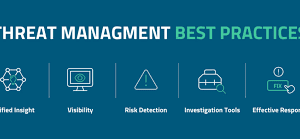In today’s competitive job market, having a project management certification can significantly enhance your career prospects. While the PMP Certification in Canada is highly regarded, it is essential to understand how it compares to other project management certifications. This guide will explore the differences, benefits, and considerations of various project management certifications available in Canada, helping you make an informed decision.
Understanding the PMP Certification
The Project Management Professional (PMP) certification is offered by the Project Management Institute (PMI) and is recognized globally as a standard for project management excellence. The PMP certification validates your expertise in managing projects and demonstrates your commitment to the profession. It covers a wide range of project management topics, including initiating, planning, executing, monitoring, and closing projects.
Benefits of PMP Certification
- Global Recognition: It is recognized worldwide, making it a valuable asset if you plan to work internationally or with global companies.
- Comprehensive Knowledge: The PMP exam covers all aspects of project management, ensuring that you have a thorough understanding of the field.
- Career Advancement: It is often a requirement for higher-level project management positions and can lead to increased job opportunities and higher salaries.
- Professional Network: Becoming PMP certified connects you with a global network of project management professionals, providing opportunities for networking and professional growth.
Comparing Other Project Management Certifications
While the PMP certification is well-known, other project management certifications can also be beneficial, depending on your career goals and industry. Here are some notable alternatives:
Certified Associate in Project Management (CAPM)
The CAPM is also offered by PMI and is designed for individuals who are new to project management or looking to establish a foundation in the field.
Benefits:
- Entry-Level Focus: The CAPM is ideal for those with limited project management experience.
- Stepping Stone: It serves as a stepping stone, as it requires less experience and education.
Considerations:
- Recognition: While valuable, the CAPM is not as widely recognized or prestigious as the PMP certification.
- Career Advancement: It may not open as many doors for senior-level positions as the PMP certification.
PRINCE2 Certification
PRINCE2 (Projects IN Controlled Environments) is a process-based project management methodology widely used in Europe and other parts of the world. It offers two levels of certification: PRINCE2 Foundation and PRINCE2 Practitioner.
Benefits:
- Methodology Focus: PRINCE2 provides a structured approach to project management with clearly defined roles and responsibilities.
- Flexibility: It is adaptable to various project types and industries.
Considerations:
- Regional Popularity: PRINCE2 is more popular in Europe and may not be as recognized in Canada as the PMP certification.
- Complementary Certification: It is often used in conjunction with other certifications for a more comprehensive skill set.
Certified ScrumMaster (CSM)
The CSM certification is offered by the Scrum Alliance and focuses on Agile project management principles, specifically the Scrum framework.
Benefits:
- Agile Focus: It is ideal for those working in or transitioning to Agile environments.
- Team Leadership: CSM certification emphasizes leading and facilitating Scrum teams.
Considerations:
- Scope: The CSM certification is specific to the Scrum framework and may not cover all aspects of project management.
- Industry Application: It is best suited for industries that heavily utilize Agile methodologies, such as software development.
Choosing the Right Certification
Deciding which project management certification to pursue depends on several factors, including your career goals, industry, and level of experience. Here are some tips to help you choose the right certification:
- Assess Your Experience: Consider your current level of project management experience. If you are new to the field, the CAPM or CSM might be more suitable. For experienced professionals, the PMP certification is a better fit.
- Industry Requirements: Research the preferred certifications in your industry. Some industries may favor specific certifications, such as PRINCE2 in government projects or CSM in software development.
- Career Goals: Determine your long-term career goals. If you aspire to senior project management roles, the PMP certification in Canada offers the most comprehensive and widely recognized credential.
- Training and Preparation: Consider the availability of training and preparation resources. PMP training programs are widely available in Canada, offering structured learning paths and support.
Conclusion
Earning a project management certification can significantly enhance your career prospects and demonstrate your commitment to the profession. While the PMP certification in Canada is highly regarded and offers comprehensive knowledge and global recognition, other certifications like CAPM, PRINCE2, and CSM also provide valuable credentials tailored to specific needs and industries.
By assessing your experience, industry requirements, and career goals, you can choose the certification that best aligns with your professional aspirations. Investing in the right certification will equip you with the skills and knowledge needed to excel in the dynamic field of project management, opening doors to new opportunities and career advancement.



































